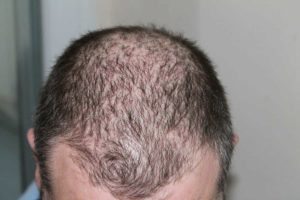
For many, hair loss is a dispiriting, albeit intimidating, bodily disorder. It can cripple confidence as it affects your physical appearance. But the truth is that just as many are misinformed about this hair and scalp condition. And misinformation often leads to the purchasing of myriads of products that do not actually have any impact enough to treat balding. Or that severe side effects take place.
Avoid all of these as you seek expert help and learn about scientific facts regarding hair loss.
No Such Thing As A Permanent Treatment
Unless you go for a hair replacement surgery, there is no medication that can bring about permanent hair regrowth and thickness. The best cases and the best treatments like Finasteride and Regaine, to name a few, are to be consistently followed through with, in order for their outcome to remain as consistent as possible.
Do not fall prey to claims of products that allegedly produce hair regrowth permanence. There is no medical research that has generated said miraculous hair balding results as of yet.
Biological Considerations
Male pattern baldness, also known as “androgenetic alopecia”, is a category of hair loss that has to do with one’s inherited genes. It is derived from one of the body’s hormones called “androgens”.
Androgens are among the strong factors which play a role in the operations of the reproductive system. Besides its other crucial functions such as regulating metabolism and muscle enhancement, it works in developing physical male characteristics like voice-changing and the growth of body hair. It is for this reason that it is also just as closely linked to testosterone in men (as it is linked to estrogen in women).
Scientists have yet to pinpoint exactly what part of the genes bring about an imbalance of androgen production. And thus, an imbalance in hair growth and maintenance. Nevertheless, there are medications that may help with the regrowth and thickening of follicles, to target this type of hair los.
Hair Shedding Is Not Hair Loss
Hair shedding, as we have mentioned in another post, happens daily. We lose hair to give way for new ones to grow. Yet when it comes to hair loss, at least, one that is hereditary, is not merely about hair falling out.
What usually happens is that the overproduction of androgens pushes the roots so much so that their sizes are reduced. Roots are comprised of protein cells, and these cells are key to allowing the normal production of hair. Smaller roots equals less protein cells, which then equates to the growth of thinner strands.
This scalp occurrence will continue, sans any intervention of medication. Soon, the root shrinkage shall reach a point where each one will be too small to host the development of new hair. Hence, balding.
Hair Loss Is Not Always Related To Age
Although men tend to start having thinner hair strands, and after, the absence of hair growth on regions of the scalp from their 40s and over, even those as young as 20 years old acquire hair loss as well.
As mentioned, androgenetic alopecia is among the major variables when considering early hair loss. At the same time, components like stress may be grounds for hair growth disorder, too.
Hair loss due to stress or “telogen effluvium” transpires as stress itself can force hair follicles and roots to stay stagnant. They remain in a “resting phase” while your body and its systems therein cope with the impact of stress towards you. The good news is that telogen effluvium is rarely permanent. Once you begin to right your daily routine and learn to handle stress healthily, you will regain your thick locks the way they were prior to the heavy period of stress.





















Add Comment